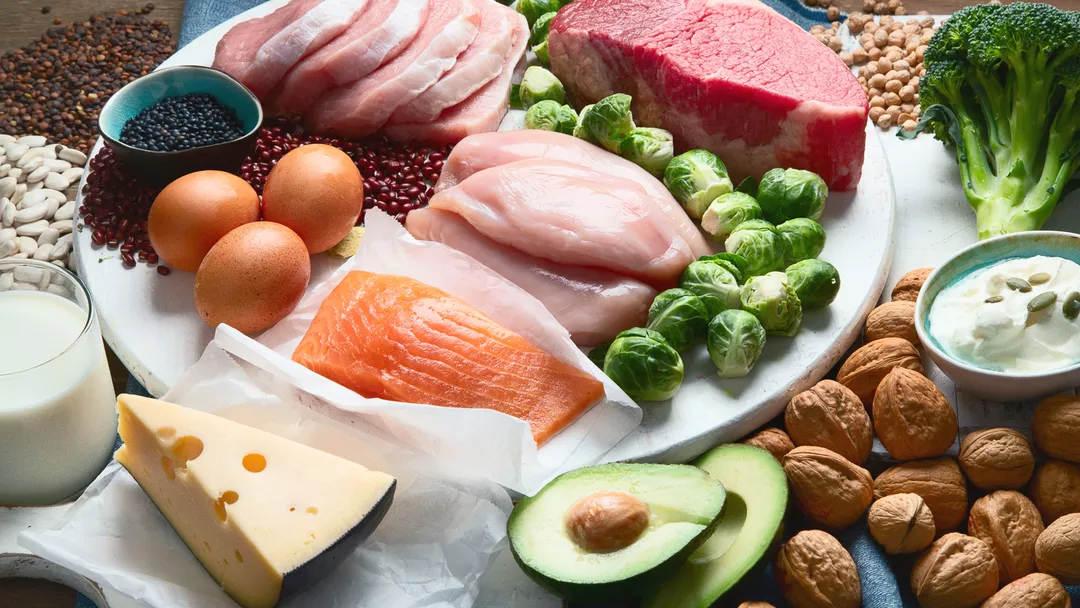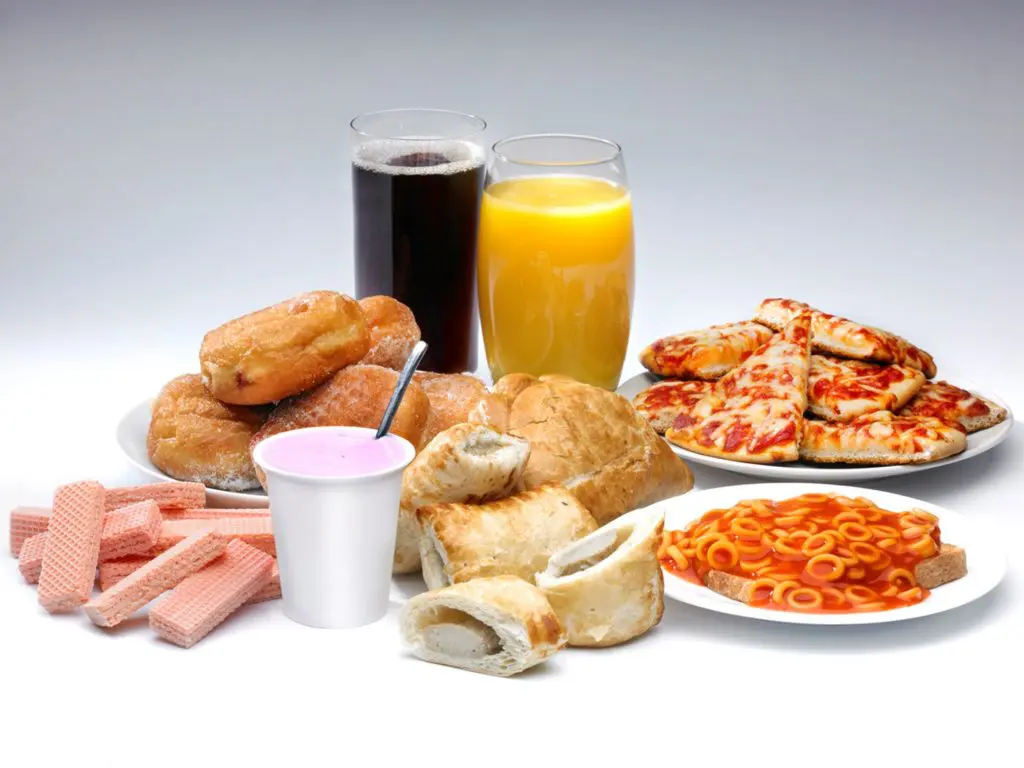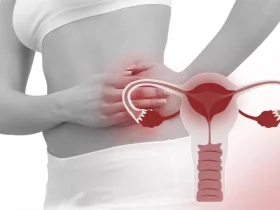Menopause is a natural phase in a woman’s life, but it often comes with various challenges, including weight gain and difficulty shedding those extra pounds. Fortunately, a well-crafted dietary plan tailored to the specific needs of women in this stage can effectively aid in weight loss and overall health improvement. The Menopause Diet 5-Day Plan to Lose Weight is designed to address these concerns, allowing women to embrace this phase of life with strength and confidence.
This plan focuses on incorporating nutrient-dense, low-carb meals that help maintain hormonal balance and promote satiety, preventing weight gain and minimizing menopausal symptoms. By following this thoughtfully curated 5-day plan, one can expect to see results not only in terms of weight loss but also in terms of feeling more energetic and revitalized.
In addition to a comprehensive meal plan, it’s essential to consider other factors such as sleep, stress management, and regular exercise in order to optimize success in weight loss and relief from menopausal symptoms. The Menopause Diet 5-Day Plan to Lose Weight is a practical starting point for women seeking to navigate menopause with grace, strength, and optimal well-being.
Reader's Roadmap
Understanding Menopause
Menopause is a natural phase in a woman’s life when her menstrual cycle comes to an end, marking the cessation of her reproductive years. This usually occurs between the ages of 45 and 55. Perimenopause is the transitional period leading up to menopause, during which a woman’s hormone levels begin to fluctuate.
During perimenopause, the levels of key reproductive hormones such as estrogen and progesterone start to decline. These hormonal changes can lead to a range of challenging symptoms for many women. Some of the most common symptoms include mood swings, hot flashes, and night sweats.
As estrogen and progesterone levels decrease, women may also experience changes in their energy levels, sleep patterns, and metabolism. This can sometimes make it more difficult to maintain a healthy weight during and after menopause. A well-balanced diet and a 5-day menopause diet plan can provide support for women navigating through this period, as it helps them manage their weight and minimize other symptoms related to hormonal changes.

Health Challenges During Menopause
During menopause, women experience a variety of health challenges that can make weight management more difficult. One of the most common issues is weight gain, which can result from hormonal fluctuations, decreased muscle mass, and changes in metabolism. This weight gain can increase the risk of developing chronic conditions such as diabetes, heart disease, and metabolic syndrome.
Another significant issue faced during menopause is muscle loss, which can occur due to a decline in estrogen levels. This hormone not only plays a crucial role in maintaining bone density, but it also affects muscle mass and strength. As muscle mass decreases, metabolism slows down, leading to a higher risk of weight gain and obesity.
Besides, many women struggle with poor sleep during menopause. Hormonal shifts can lead to hot flashes and night sweats, making it difficult to sleep through the night. A lack of quality sleep can contribute to weight gain, insulin resistance, and a higher likelihood of developing type 2 diabetes.
Furthermore, menopause is associated with an increased risk of developing heart disease due to declining estrogen levels. Lower estrogen levels can lead to a rise in LDL cholesterol, also known as “bad” cholesterol, which may contribute to the development of heart disease. Additionally, weight gain, insulin resistance, and metabolic syndrome during menopause can compound the risk of heart disease.
In conclusion, menopause presents various health challenges, including weight gain, muscle loss, poor sleep, and an increased risk of chronic diseases like diabetes, heart disease, and metabolic syndrome. A balanced and nutrient-dense diet, such as the 5-day menopause diet plan, can help manage these health challenges and promote overall well-being during this critical transition.
The Menopause Diet: A Closer Look
The Menopause Diet aims to help women effectively lose weight during menopause by focusing on proper nutrition and a balanced intake of macronutrients. This diet consists of adequate amounts of protein, healthy fats, and complex carbohydrates. Additionally, it emphasizes the consumption of fiber-rich foods to promote gut health.
In terms of protein intake, it is essential for women going through menopause to maintain a healthy amount of protein in their diet as this macronutrient helps in building and repairing tissues. Good protein sources include lean meats, poultry, fish, eggs, and plant-based options like beans and lentils.
Healthy fats play a significant role in hormone regulation, which is crucial during menopause. Women should incorporate sources of healthy fats like avocado, olive oil, nuts, and seeds into their daily diet. A moderate intake of complex carbohydrates, found in foods such as whole grains, legumes, and starchy vegetables, provides energy and helps maintain stable blood sugar levels.
Incorporating fiber-rich foods is also essential in a menopause diet. High-fiber foods aid in digestion, improve gut health, and promote a feeling of fullness, decreasing the chances of overeating. Some fiber-rich examples include fruits, vegetables, whole grains, and legumes.
The Menopause Diet also focuses on calorie control by encouraging portion control and mindful eating habits. By consuming a balanced diet, women can effectively manage their hunger, reduce insulin resistance, and improve their overall well-being during menopause.
5-Day Eating Plan to Lose Weight

The Menopause Diet 5-day eating plan focuses on incorporating nutrient-dense foods while eliminating ones that may cause hormonal imbalances or weight gain. It’s designed to help women in menopause effectively lose weight and improve overall health.
Day 1:
- Breakfast: Spinach and mushroom frittata
- Lunch: Grilled chicken salad with avocado and mixed greens
- Dinner: Baked salmon with steamed vegetables
Day 2:
- Breakfast: Greek yogurt with nuts and berries
- Lunch: Caprese salad with cherry tomatoes and mozzarella
- Dinner: Turkey and vegetable stir-fry
Day 3:
- Breakfast: Chia seed pudding with sliced almonds and honey
- Lunch: Tuna lettuce wraps with cucumber, dill, and lemon juice
- Dinner: Zucchini noodles with marinara sauce and turkey meatballs
Day 4:
- Breakfast: Green smoothie with spinach, kale, avocado, and almond milk
- Lunch: Quinoa lentil salad with roasted vegetables
- Dinner: Grilled shrimp skewers with a side of cauliflower rice
Day 5:
- Breakfast: Apple and almond butter oatmeal
- Lunch: Chickpea avocado salad with lemon-tahini dressing
- Dinner: Rosemary roasted chicken and asparagus
Foods to include in this meal plan are lean proteins like chicken, turkey, and fish, healthy fats like avocado and nuts, and an abundance of fruits, vegetables, and whole grains. Including these foods will help maintain a healthy balance of nutrients and support hormone regulation.
Foods to avoid during this 5-day eating plan are processed sugars, refined carbohydrates, and excessive caffeine. These types of foods can contribute to hormonal imbalances and make it harder to lose weight during menopause.
By following this 5-day meal plan, women going through menopause can create a solid foundation for healthy eating habits. Through meal prepping and careful selection of foods, it is possible to achieve sustainable weight loss and improved overall well-being during this phase of life.
The Role of Exercise and Lifestyle Changes

Incorporating regular exercise and making certain lifestyle changes are essential components of a successful menopause diet plan. These changes can positively impact weight loss efforts, and help alleviate some of the more common symptoms associated with menopause.
Physical activity is crucial for maintaining a healthy weight during menopause. In fact, it’s recommended that women engage in at least 2 hours and 30 minutes of moderate exercise per week. However, for more effective weight loss, it may be beneficial to work up to 4 hours or more of exercise each week. Resistance training is particularly helpful, as it can prevent muscle loss and promote lean muscle growth, in turn, increasing metabolism.
Yoga and meditation are also valuable additions to the menopause diet plan. These practices can alleviate menopause symptoms such as hot flashes and mood swings, which can sometimes result in emotional eating or poor food choices. Yoga can also improve flexibility and balance while helping to reduce stress levels.
Sleep is another vital aspect of a healthy menopause diet plan. During menopause, hormonal changes often affect sleep patterns, leading to insomnia or restless sleep. Prioritizing good sleep hygiene, including maintaining a consistent sleep schedule and creating a calming bedtime routine, can improve overall sleep quality and support weight loss efforts.
Lastly, managing stress is essential for weight loss during menopause. Chronic stress can lead to elevated cortisol levels, which can contribute to weight gain. Engaging in relaxation techniques such as deep breathing exercises, gentle stretching, or even spending time with loved ones can help reduce stress and support a successful menopause diet plan.
In conclusion, incorporating exercise, making thoughtful lifestyle changes, and addressing factors such as sleep and stress play a significant role in achieving weight loss goals during menopause. By adopting these strategies, it’s possible to maintain a healthy weight and alleviate menopause symptoms effectively.
Benefits of a Balanced Menopause Diet
A balanced menopause diet can profoundly impact a woman’s overall wellbeing during this transitional phase. By including the right mix of nutrients, a balanced diet helps address common concerns such as weight loss, energy levels, muscle mass preservation, estrogen regulation, blood sugar control, bone health, and metabolism.
Weight loss is often a primary concern for women during menopause. Incorporating nutrient-dense foods, such as lean proteins, healthy fats, and complex carbohydrates, can promote healthy weight loss by boosting satiety and keeping calorie intake in check. Furthermore, a focus on whole foods and adequate fiber can also assist in maintaining a stable blood sugar, preventing energy crashes and cravings.
Increased energy levels are another essential benefit of a well-balanced menopause diet. A combination of high-quality proteins, healthy fats, and complex carbohydrates supply sustained energy, while micronutrients such as iron and B-vitamins support energy production at the cellular level.
As estrogen levels fluctuate during menopause, a balanced diet can help manage these changes. For instance, consuming foods rich in phytoestrogens (like soy products) can imitate some of the functions of estrogen, potentially alleviating common menopausal symptoms.
Muscle mass maintenance is crucial during menopause, as a decline in muscle mass can lead to a decreased metabolic rate. Consuming adequate amounts of protein throughout the day can help preserve muscle mass, while engaging in regular resistance training can further stimulate muscle growth and strength.
Bone health is a significant concern during menopause, as the decline in estrogen levels can lead to increased bone loss and a heightened risk of osteoporosis. Prioritizing foods high in calcium, vitamin D, and magnesium, such as dairy products, leafy greens, and fatty fish, can support bone health and density.
Lastly, a balanced menopause diet can be tailored to support an individual’s metabolic needs. By adjusting macronutrient compositions and incorporating specific proteins, fats, and carbohydrates, a personalized diet can facilitate optimal metabolism and weight management during menopause.
Cravings, Hunger and How to Manage Them

During menopause, hormonal changes can lead to increased hunger and cravings, making it challenging to stick to a healthy diet. Understanding the connection between hormones, hunger, and cravings is essential for managing them effectively.
Hormones like ghrelin and leptin regulate hunger and fullness signals in the body. When levels of these hormones are imbalanced, it can result in increased hunger and cravings. During menopause, estrogen fluctuations might also contribute to changes in appetite.
To manage hunger and cravings during menopause, it’s crucial to focus on a well-balanced diet that includes sufficient amounts of protein, healthy fats, and complex carbohydrates. A low-carb, high-protein diet can help relieve menopause symptoms and promote weight loss without causing excessive hunger.
Here are some tips to help manage hunger and cravings during menopause:
- Plan your meals and snacks in advance to ensure that you’re consuming nutrient-dense, filling foods throughout the day.
- Stay hydrated, as dehydration can often be mistaken for hunger.
- Practice mindful eating, focusing on the taste, texture, and aroma of the food, which can help put cravings on the back burner.
- Avoid consuming processed or sugary foods, as they can lead to blood sugar spikes and increased cravings.
- Find healthy alternatives to your favorite treats, such as dark chocolate (which can be a source of magnesium) to satisfy cravings without sabotaging your diet.
Managing stress is another vital component of controlling hunger and cravings during menopause. When stress levels are high, cortisol increases, which can trigger emotional eating or binge eating. Incorporating stress-reducing techniques like meditation, yoga, or deep breathing can help keep cortisol levels in check, ultimately supporting better appetite control.
Foods to Include in the Menopause Diet

Protein-Rich Foods
Incorporating protein-rich foods in the menopause diet can assist in maintaining a healthy weight and muscle mass. Examples of lean protein sources include turkey, eggs, and low-fat dairy products like yogurt. These foods not only provide essential nutrients but also help in keeping you full and satisfied.
Fruits and Vegetables
Fruits and vegetables should be an integral part of any healthy diet, including the menopause diet. They provide essential vitamins, minerals, and antioxidants that can help combat menopausal symptoms. Berries, broccoli, and cauliflower are excellent choices for their high nutrient content and potential to reduce inflammation. Aim to eat a colorful variety of fruits and vegetables to obtain the most benefits.
Healthy Fats
Avocado, nuts, and seeds are excellent sources of healthy fats which are important for hormonal balance and overall health during menopause. These foods offer essential fatty acids and important nutrients such as calcium. Make sure to include moderate portions of these foods in your menopause diet to support your body through this transition.
Whole Grains and Legumes
Whole grains and legumes are packed with nutrients and fiber that support digestive health and help maintain a healthy weight. Beans, for example, are rich in fiber and proteins that can keep you feeling full and satisfied. Including a variety of whole grains such as brown rice, quinoa, and whole wheat pasta can help manage blood sugar levels and provide energy throughout the day.
Herbs and Spices
Herbs and spices like basil, thyme, and clove not only add flavor to your meals but also provide potent antioxidants and anti-inflammatory compounds that can help alleviate menopause symptoms. Incorporating these herbs and spices into your cooking can be a delicious way to reap their health benefits and improve the taste of your meals.
In summary, a well-balanced menopause diet should include a variety of protein-rich foods, fruits and vegetables, healthy fats, whole grains and legumes, and herbs and spices. These foods can help manage symptoms of menopause, support overall health, and promote a healthy weight during this transition.
Foods to Avoid in the Menopause Diet

During menopause, it is crucial to maintain a healthy and balanced diet to manage symptoms and support your body through this transition. There are certain foods that you should avoid or limit in your menopause diet, which can exacerbate symptoms or negatively impact your overall health.
Processed foods should be limited or avoided altogether. These foods often contain harmful additives, unhealthy fats, and refined carbohydrates. Instead, focus on whole and natural ingredients that provide essential nutrients without unnecessary additives.
Added sugars are another component to steer clear of in your menopause diet. Consuming too much-added sugar can lead to weight gain, increased inflammation, and worsening menopausal symptoms. Replace sugary snacks and beverages with nutrient-dense options such as fruits, nuts, or herbal tea.
Cutting back on coffee may also be beneficial, as caffeine can trigger hot flashes and interfere with your sleep quality. If you can’t go without your cup of joe, try reducing the amount you consume or switching to a lower-caffeine alternative like green tea.
Avoiding fried foods is also essential for managing menopausal symptoms and maintaining a healthy weight. Fried foods are often high in unhealthy fats and calories, which can lead to weight gain and increased inflammation in the body. Opt for healthier cooking methods such as baking, steaming, or grilling.
Candy is another item to avoid in your menopause diet. High in added sugars and empty calories, candies do nothing for your overall health and can exacerbate menopausal symptoms. As a healthier alternative, satisfy your sweet cravings with natural options like fruits or dark chocolate.
In conclusion, maintaining a healthy diet during menopause is crucial for managing symptoms and supporting your overall well-being. Avoid or limit the intake of processed foods, added sugars, coffee, fried food, and candy to ensure a smoother transition through this phase of life. Focus on nutritious alternatives that provide essential nutrients and promote optimal health.
Understanding and Adjusting Your Lifestyle Factors
When embarking on the menopause diet 5 day plan to lose weight, it’s essential to consider the lifestyle factors that impact weight loss and menopause symptoms. As a woman goes through the aging process, changes in her resting energy expenditure and menstrual cycles contribute to differences in how her body functions compared to earlier years.
One of the most critical lifestyle factors is physical activity. Regular exercise not only helps burn calories but also plays a significant role in maintaining a healthy resting energy expenditure, the number of calories burned when at rest. As we age, this rate decreases, making weight loss more challenging. Incorporating exercises that include both cardiovascular activities and strength training can help counteract this natural decline.
Additionally, managing stress is crucial during menopause, as it can exacerbate symptoms and impact overall well-being. Practicing relaxation techniques, such as meditation, deep breathing, or yoga, can aid in stress reduction and promote better sleep. Adequate sleep is vital for weight loss, as it allows the body to repair and regenerate properly.
Moreover, understanding hormonal fluctuations during menopause is essential, as they can lead to irregular menstrual cycles and have a significant effect on metabolism. It’s important to note that hormones and weight loss are interconnected, and maintaining balanced hormonal levels can help women achieve better weight management throughout menopause.
Proper hydration is another key element in weight loss efforts during menopause. Drinking adequate amounts of water can help control appetite, improve digestion, and support the body’s metabolic processes.
In conclusion, addressing these lifestyle factors in conjunction with the menopause diet 5-day plan can contribute to more effective weight loss and improved overall health. By staying active, managing stress, understanding hormonal changes, and maintaining proper hydration, women can better navigate the challenges of menopause and achieve their weight loss goals.
How The Menopause Diet Affects Weight and Body Fat
During menopause, hormonal changes occur in a woman’s body, which can affect weight and body fat distribution. As estrogen levels decline, fat storage may shift to the abdominal region, resulting in an increase in abdominal fat. Furthermore, metabolism tends to slow down during this stage, making it more challenging to maintain or lose weight.
One key aspect of the menopause diet is consuming a well-balanced diet, which can help manage symptoms and support overall health. Focusing on nutrient-dense foods rich in vitamins, minerals, and antioxidants can aid in maintaining lean muscle mass and promoting weight loss.
Implementing a menopause diet includes:
- Eating more soluble fiber: Soluble fiber slows gastric emptying, keeping you fuller for longer periods. An increase in daily soluble fiber intake can reduce belly fat.
- Incorporating lean protein sources: Protein is essential for preserving lean muscle mass, which can decline during menopause. Lean protein sources include poultry, fish, beans, and legumes.
- Choosing healthy fats: Incorporating healthy fats, such as avocados, nuts, and olive oil, can help maintain hormone balance and promote satiety.
- Including calcium-rich foods: Calcium is necessary to support bone health, which can be negatively impacted during menopause. Include foods like dairy products, broccoli, and almonds in your diet.
- Avoiding processed foods and added sugars: These items can contribute to weight gain and increase the risk of developing chronic diseases.
Regular exercise is also crucial in managing weight and maintaining lean muscle mass during menopause. Engaging in a combination of aerobic, strength training, and flexibility exercises can help improve weight loss efforts.
In summary, a well-balanced menopause diet can positively influence weight, body fat distribution, and overall health. By focusing on nutrient-dense foods and incorporating regular physical activity, women can better manage their weight and body composition during this natural transition in their lives.
Implementing the 5 Day Plan
The 5 Day Menopause Diet Plan aims to help women manage weight gain during menopause through a balanced and nutritious meal planning strategy. By effectively integrating this plan, individuals can kickstart their weight loss journey, develop healthier habits, and improve overall well-being.
To ensure a successful implementation of the 5 Day Menopause Diet Plan, one must first understand its key components. The plan focuses on consuming whole foods, including fruits, vegetables, and whole grains. Emphasis is placed on limiting added sugars, saturated fats, and trans fats, while incorporating protein-rich foods such as legumes and nuts.
Getting started with the 5 Day Menopause Diet Plan involves carefully planning meals for each day. While variety is encouraged, it’s essential to maintain consistency and adhere to the nutritional guidelines for optimal results. Some meal ideas to incorporate into the plan are:
- Breakfast: Greek yogurt with berries and a sprinkle of nuts
- Lunch: Mixed salad with lean protein like grilled chicken or tofu, and a side of quinoa
- Dinner: Baked salmon with steamed vegetables and a side of brown rice
In addition to meal planning, the 5 Day Menopause Diet Plan recommends regular exercise, ideally at least three or four times per week for about 30 minutes each session. This can include activities like walking, jogging, swimming, or even joining group fitness classes.
Staying committed throughout the entire 5 Day Plan is crucial for achieving the desired results. To ensure adherence, it’s helpful to establish clear goals, track progress, and seek support from friends, family, or a fitness coach.
It’s important to remember that small, consistent changes can create significant results in the long run. By incorporating the 5 Day Menopause Diet Plan, women can effectively manage their weight during menopause and work towards a healthier, more satisfying lifestyle.
Using Medication Alongside the Diet

When it comes to managing menopause symptoms and weight loss, the 5-day menopause diet plan can be highly effective. However, in some cases, incorporating medication into your regimen can be beneficial. It’s important to consult with your healthcare provider to determine which medications are appropriate for you and to ensure they’re compatible with dietary changes.
Some individuals may be dealing with Type 2 diabetes alongside menopause. In such cases, it is essential to monitor blood sugar levels closely while following the menopause diet. Medications for Type 2 diabetes, such as Metformin or insulin, may need to be adjusted based on dietary changes. It’s crucial to track your blood sugar levels regularly and communicate with your healthcare provider about any fluctuations, diet, or medication adjustments.
Furthermore, some women may experience exacerbated menopause symptoms and may benefit from hormone replacement therapy (HRT). HRT can help alleviate hot flashes, night sweats, mood swings, and other symptoms associated with menopause. In addition, some HRT medications can also have a positive impact on weight management by promoting an increase in lean muscle mass and a reduction in abdominal fat.
Finally, over-the-counter supplements like calcium, vitamin D, and other essential nutrients can complement the menopause diet. These supplements can support bone health, immune system function, and overall well-being throughout the menopausal transition.
In conclusion, incorporating medication and supplements into your menopause diet plan can be beneficial for certain individuals, providing additional support and care. It’s essential, however, to consult with your healthcare provider before making any changes to your medication regimen or incorporating supplements into your routine.







Leave a Reply
View Comments